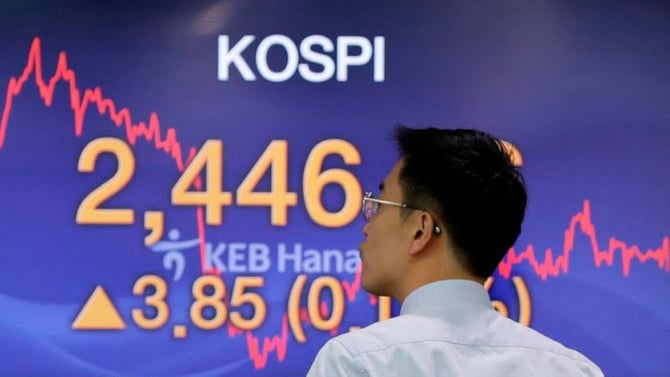South Korea Eyes Stock Market Boom Amid Reforms

Seoul is implementing reforms to address the 'Korea discount,' which has long depressed the valuations of its companies. Now, a growing number of Koreans, many young, are investing in stocks.
From 2022 to 2023, Korea’s stock market capitalization rose by 23.1%, with foreign investors constituting nearly a third of shareholders. The number of shareholders in listed companies in South Korea almost tripled between 2016 and 2022 to around 14.5 million.
Despite globally recognized brands like Samsung and Hyundai, South Korea’s market has been undervalued due to factors such as the dominance of family-run conglomerates (chaebols), poor corporate governance, and geopolitical tensions with North Korea.
In February, the South Korean government launched the Corporate Value-up Programme to eliminate the Korea discount by encouraging companies to share more profits with shareholders. The initiative includes tax benefits and creating a Korea Value-Up index to highlight high-performing firms. These reforms are inspired by Japan's regulatory changes, which have boosted the Nikkei 225 to record highs after decades of stagnation.
What Does This Mean for Me?
However, replicating Japan’s success may be challenging. While South Korea’s Financial Services Commission has promised stronger incentives than those in Japan, the initial response has been lukewarm. The Kospi index fell 0.77% on the announcement day amid criticism that the proposals were vague and relied on voluntary participation without addressing core issues like high inheritance taxes.
Analysts suggest that more concrete policies may be necessary to attract investors, particularly tax incentives and strengthened shareholder rights.
More News

Egypt’s Recovery Gains Traction as Household Pressure Lingers
12 hours ago

OECD Warns AI and Tariffs Will Test the Global Economy
5 days ago

Zero Tariffs, Higher Drug Bills as US and UK Reset Pharma Trade
6 days ago

Catastrophe Bonds Go Global as Climate Risk Meets Yield Hunting
1 week ago
.webp)
Canada Shields Steel and Lumber Industries From Tariffs
1 week ago

Trump Drops Selected Tariffs in Response to Inflation Pressures
1 week ago

Tariffs on Mexico Test Nuevo Leon’s Industrial Momentum
2 weeks ago

US Moves to Ease Latin American Tariffs as Food Inflation Mounts
2 weeks ago